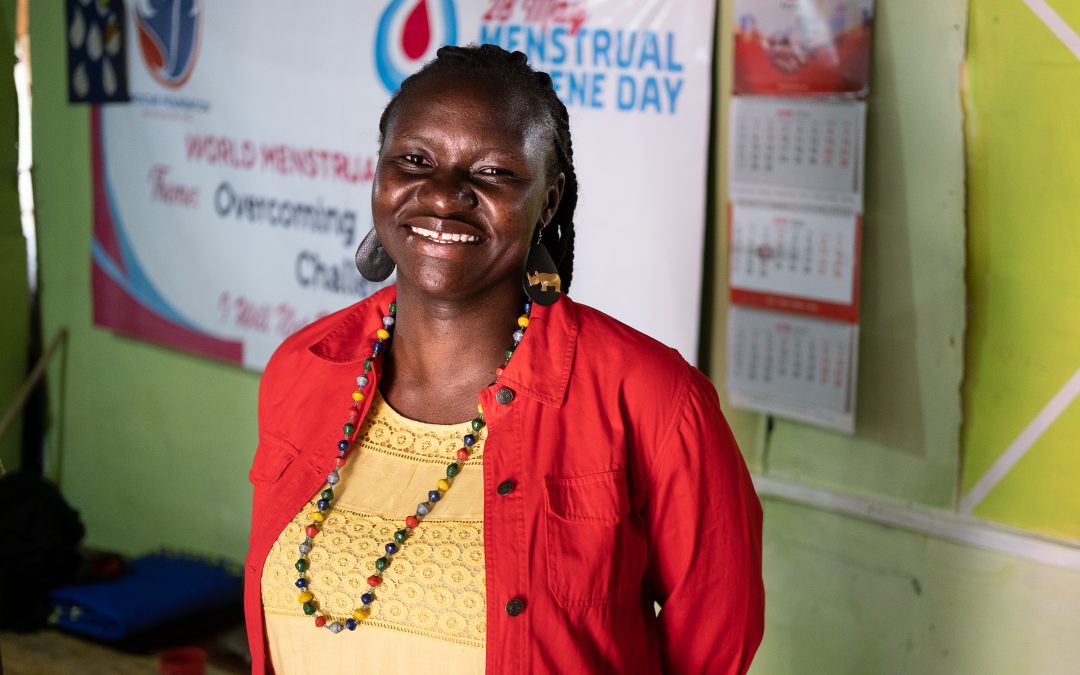Everlyne Bowa is the founder of the Kibera-based organisation Agape Woman and Child Empowerment Foundation (AWOCHE Foundation) and is a champion for maternal health issues in her community. She shared her experience with how the COVID-19 pandemic has affected her community.
What is the impact of COVID-19 on access to family planning services?
Access to family planning services and commodities has been really reduced at this time. Supply has reduced and people are not being trained on how to use family planning methods and people are having to wait until COVID-19 ends to access the necessary services. We expect many pregnancies this period – there will be an increase in teenage pregnancies because access to family planning methods has reduced and people are told to minimize their visits to the hospitals.
During COVID-19, we engage in sensitization and build awareness on maternal health, specifically on pregnant women who are still undergoing antenatal care. You find that there are so many pregnant women who don’t know what to do because access to health facilities has reduced. They go to the facilities when they feel pain, to get drugs or for an injection and blood test. Pregnant women fear going to health facilities because some were chased home because they may have contracted COVID-19, some are confused as to whether to stay at home since they don’t know what will happen, and others are coming to the end of their pregnancy and are about to give birth. Now that we have a curfew, pregnant women don’t know what to do when they are in labor pain and have no one to take them to the hospital. COVID-19 has brought a lot of challenges to pregnant women because they are scared to contract the virus and to put the baby at risk.
What challenges are pregnant women facing during the COVID-19 pandemic?
During COVID-19, pregnant women are facing challenges like fear of going to health facilities, post-partum depression, going to sleep hungry, family conflicts and fear of what comes next after giving birth. They don’t know what to do and a lack of finances is a further challenge for these families.
What is the impact of COVID-19 on SRHR?
In sexual and reproductive health (SRH), we have challenges that have begun during the COVID-19 pandemic. Information was being shared with girls and boys in schools but currently the schools are closed and the information is not accessible anymore. Products such as sanitary pads were being distributed in schools so girls are now facing a challenge of how to access them when their families cannot provide them. You find girls going through various challenges of accessing family planning methods and sanitary pads. In maternal health, pregnant women are facing diverse challenges because they cannot go to the hospital as usual or leave their home as usual because they are afraid of coming into contact with someone who is infected with the virus.

Everlyne Bowa, photographed by Brian Otieno for DSW.
What would you like to see to ensure your rights are being protected?
I would like to see people being treated equally, especially girls. People should not underrate women. Because she is a woman, people think she is not capable. People need to change their thoughts on women. They need to believe in girls and invest in girls, and build up more women in society. Men have been manipulating things while women have been struggling. Women should be involved in decision-making processes and the implementation of projects.
What has changed since the onset of the pandemic?
Due to COVID-19, we expect an increase in teenage pregnancy and early marriage since these two issues are interconnected. When a teenage girl gets pregnant, this causes conflict within the family and can lead to her being separated from her family. She will have to end her education early because she needs to take care of the baby, and she will be told to go back to where she got pregnant. This will lead to early marriage or unsafe medical intervention that could lead to complications or death.
Cases are increasing because people are sexually active and living in poverty, and because a man may lure a girl with the offer of money and food. Conflicts in the family make girls decide to leave the house and stay with their boyfriends. At this time, parents are very busy and teens are staying at home and engaging in sexual activity without taking the necessary precautions. So, unintended pregnancies will likely increase but we hope it will come to an end through our advocacy and creation of awareness.
What worries you the most during this time?
What worries me about on the state of SRHR right now is that people are idle and access to family planning and contraception services are limited and people are engaging in early, unprotected sex. What worries me most is that we will see an increase in teenage pregnancy, early marriage and family breakups.
What advice would you give to women and girls?
In life, there is always time for everything. You have to take your time to get the best results. Challenges that you face are always lessons for a better future. You have to inspire and motivate yourself – don’t look backwards, look forward and stay positive. Challenges are here to build and mold you. As a woman, stay focussed and try to look forward to growing and building up other women in the community. As a girl, focus on your education because education is the key to success in life. All these things are here to stay but education is your bright future and walk with it until you see a light ahead and work towards it and get it.
Photographs and videos by Brian Otieno for DSW.
